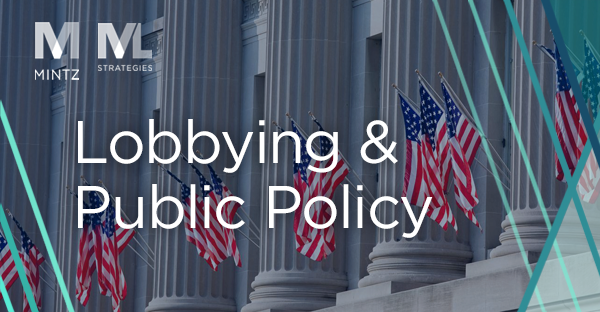Governor Baker Extends and Modifies Order Closing All Non-Essential Massachusetts Businesses: Updates that Office Landlords Should Know
On March 23, 2020, Governor Charlie Baker of Massachusetts issued COVID-19 Order No. 13 requiring all businesses and organizations in the Commonwealth of Massachusetts that do not provide “COVID-19 Essential Services” (“Essential Services”) to close their physical workplaces and facilities to workers, customers and the public as of 12:00 noon on Tuesday, March 24, 2020 until 12:00 noon on April 7, 2020. Businesses that do not provide Essential Services are encouraged to continue their operations on a remote basis such that workers, customers and the public do not enter their brick-and-mortar establishments. The Order also prohibits gatherings of more than 10 people within any confined indoor or outdoor space (except for parking lots, parks or athletic fields). On March 31, 2020, Governor Baker issued a related order, COVID-19 Order No. 21 (the “Order”) extending the operation of its previous order to May 4, 2020 and updating the list of Essential Services based on federal guidance. Violations of the Order shall be punishable by criminal penalties or by a civil fine of up to $300 per violation.
Essential Services
Essential Services are described in Exhibit A to the Order. Any businesses that provide Essential Services do not need to take any further action in order to continue operating their businesses. There will be no designation or certification from the Commonwealth stating that a specific company is providing Essential Services. Further, these businesses are still strongly advised to follow social distancing protocols for workers in accordance with guidance from the Department of Public Health (“DPH”).
The Order explicitly states that restaurants, bars, and other retail establishments that provide food and beverages to the public are Essential Services and shall continue to offer food and beverages for take-out and delivery as long as they follow DPH’s guidance on social distancing.
DPH also recently issued guidance describing the limited purposes and uses for which lodging (e.g., hotels, motels, inns, beds and breakfasts and other short-term residential rentals) constitutes an Essential Service under the Order. According to the guidance, lodging will be considered an Essential Service if it is used for COVID-19 relief efforts, and any lodging for leisure, vacation, and other similar purposes is now prohibited.
If the function of your business is not listed as an Essential Service, but you believe that it is essential or that it provides essential services or functions, you may formally request designation as “essential” under the Order here. Business should only do so if they are not already covered by the COVID-19 Essential Services guidance.
For more detailed information on the Essential Services under the Order, you can visit “COVID-19 Essential Services FAQs”, which is updated on a rolling basis.
Key Takeaways for Landlords
Our conclusion is that landlords should be able to continue providing basic security, sanitation service, and other services truly needed for maintaining and operating their buildings. In addition, landlords and tenants should be able to maintain the IT infrastructure needed for remote work provided that they are doing so in a manner that otherwise comports with the Order. Further, financial serv
ices are an Essential Service under the Order, so both tenants and landlords should be able to make payments provided by their leases and process payroll. With respect to construction-related activities, while more guidance on the topic is needed, this Order narrows the type of construction work that is considered essential. In general, construction will be permitted to the extent it is for essential infrastructure or relates to essential products and services in COVID-19 relief efforts.
Relevant sections from the statewide guidelines for Essential Services are below. The communications, IT, financial services, commercial facilities and construction-related activities sections have been copied wholesale from the guidelines, but with the most important exceptions for office users bolded.
Mintz will continue to monitor and analyze the rapidly changing legal landscape.
COMMUNICATIONS AND INFORMATION TECHNOLOGY
Communications:
- Maintenance of communications infrastructure- including privately owned and maintained communication systems- supported by technicians, operators, call-centers, wireline and wireless providers, cable service providers, satellite operations, undersea cable landing stations, Internet Exchange Points, Points of Presence, Network Access Points, back haul and front haul facilities, and manufacturers and distributors of communications equipment
- Government and private sector employees (including government contractors) with work related to undersea cable infrastructure and support facilities, including cable landing sites, beach manhole vaults and covers, submarine cable depots and submarine cable ship facilities
- Government and private sector employees (including government contractors) supporting Department of Defense internet and communications facilities
- Workers who support radio, television, newspaper and media service, including, but not limited to front line news reporters, studio, and technicians for newsgathering, and reporting, and publishing news
- Network Operations staff, engineers and/or technicians to include IT managers and staff, HVAC & electrical engineers, security personnel, software and hardware engineers, and database administrators that manage the network or operate facilities
- Engineers, technicians and associated personnel responsible for infrastructure construction and restoration, including contractors for construction and engineering of fiber optic cables, buried conduit, small cells, other wireless facilities, and other communications sector-related infrastructure. This includes construction of new facilities and deployment of new technology as these are required to address congestions or customer usage due to unprecedented use of remote services.
- Installation, maintenance and repair technicians that establish, support or repair service as needed
- Central office personnel to maintain and operate central office, data centers, and other network office facilities, critical support personnel assisting front line employees
- Customer service and support staff, including managed and professional services as well as remote providers of support to transitioning employees to set up and maintain home offices, who interface with customers to manage or support service environments and security issues, including payroll, billing, fraud, logistics and troubleshooting
- Workers providing electronic security, fire, monitoring and life safety services, and to ensure physical security, cleanliness and safety of facilities and personnel, including temporary licensing waivers for security personnel to work in other States or Municipalities
- ·Dispatchers involved with service repair and restoration
- Retail customer service personnel at critical service center locations for onboarding customers, distributing and repairing equipment and addressing customer issues in order to support individuals’ remote emergency communications needs, supply chain and logistics personnel to ensure goods and products are on-boarded to provision these front-line employees.
- External Affairs personnel to assist in coordinating with local, state and federal officials to address communications needs supporting COVID-19 response, public safety, and national security.
Information Technology
- Workers who support command centers, including, but not limited to Network Operations Command Centers, Broadcast Operations Control Centers and Security Operations Command Centers
- Data center operators, including system administrators, HVAC & electrical engineers, security personnel, IT managers, and purchasers, data transfer solutions engineers, software and hardware engineers, and database administrators, for all industries (including financial services)
- Workers who support client service centers, field engineers, and other technicians and workers supporting critical infrastructure, as well as manufacturers and supply chain vendors that provide hardware and software, support services, research and development, and information technology equipment (to include microelectronics and semiconductors) and HVAC and electrical equipment for critical infrastructure, and test labs and certification agencies that qualify such equipment (to include microelectronics, optoelectronics, and semiconductors) for critical infrastructure, including data centers
- Workers needed to preempt and respond to cyber incidents involving critical infrastructure, including medical facilities, SLTT governments and federal facilities, energy and utilities, and banks and financial institutions, securities/other exchanges, other entities that support the functioning of capital markets, public works, critical manufacturing, food and agricultural production, transportation, and other critical infrastructure categories and personnel, in addition to all cyber defense workers (who can’t perform their duties remotely)
- Suppliers, designers, transporters and other workers supporting the manufacture, distribution and provision and construction of essential global, national and local infrastructure for computing services (including cloud computing services and telework capabilities), business infrastructure, financial transactions/services web-based services, and critical manufacturing
- Workers supporting communications systems and information technology- and work from home solutions- used by law enforcement, public safety, medical, energy, public works, critical manufacturing, food & agricultural production, financial services, education and other critical industries and businesses
- Employees required in person to support Software as a Service businesses that enable remote working, performance of business operations, distance learning, media services, and digital health offerings, or required for technical support crucial for business continuity and connectivity.
FINANCIAL SERVICES
- Workers who are needed to provide, process and maintain systems for processing, verification, and recording of financial transactions and services (including payment, clearing, and settlement; wholesale funding; insurance services; consumer and commercial lending; and capital markets activities)
- Workers who are needed to maintain orderly market operations to ensure the continuity of financial transactions and services
- Workers who are needed to provide business, commercial, and consumer access to bank and non-bank financial services and lending services, including ATMs, lending and money transmission, and to move currency, checks, securities and payments (e.g., armored cash carriers)
- Workers who support financial operations and those staffing call centers, such as those staffing data and security operations centers, managing physical security, or providing accounting services
- Workers supporting production and distribution of debit and credit cards
- Workers providing electronic point of sale support personnel for essential businesses and workers
COMMERCIAL FACILITIES
- Workers who support the supply chain of building materials from production through application/installation, including cabinetry, fixtures, doors, cement, hardware, plumbing, electrical, heating/cooling, refrigeration, appliances, paint/coatings, and employees who provide services that enable repair materials and equipment for essential functions
- Workers supporting ecommerce through distribution, warehouse, call center facilities, and other essential operational support functions
- Workers in hardware and building materials stores, consumer electronics, technology and appliances retail, and related merchant wholesalers and distributors - with reduced staff to ensure continued operations
- Workers distributing, servicing, repairing, installing residential and commercial HVAC systems, boilers, furnaces and other heating, cooling, refrigeration, and ventilation equipment
CONSTRUCTION-RELATED ACTIVITIES
- Workers such as plumbers, electricians, exterminators, builders, contractors, HVAC Technicians, landscapers, inspectors and other service providers who provide services that are necessary to maintaining the safety, sanitation, and essential operation of residences, businesses and buildings such as hospitals, health care facilities, senior living facilities, and any temporary construction required to support COVID-19 response
- Workers – including contracted vendors - who support the operation, inspection, maintenance and repair of essential public works facilities and operations, including roads and bridges, water and sewer, laboratories, fleet maintenance personnel, construction of critical or strategic infrastructure, traffic signal maintenance, emergency location services for buried utilities, and maintenance of digital systems infrastructure supporting public works operations. Critical or strategic infrastructure includes public works construction including construction of public schools, colleges and universities and construction of state facilities, including leased space, managed by the Division of Capital Asset Management; airport operations; water and sewer; gas, electrical, nuclear, oil refining and other critical energy services; roads and highways; public transportation; steam; solid waste and recycling collection and removal; and internet and telecommunications systems (including the provision of essential global, national, and local infrastructure for computing services)
- Workers who support infrastructure, such as by road and line clearing and utility relocation, to ensure the availability of and access to needed facilities, transportation, energy and communications
- Workers performing housing construction related activities, including construction of mixed-use projects that include housing, to ensure additional units can be made available to combat the Commonwealth’s existing housing supply shortage
- Workers supporting the construction of housing, including those supporting government functions related to the building and development process, such as inspections, permitting and plan review services that can be modified to protect the public health, including allowing qualified private third-party inspections accountable to government agencies)
OTHER ESSENTIAL SERVICES
- Workers to ensure continuity of building functions, including but not limited to security and environmental controls (e.g., HVAC), the manufacturing and distribution of the products required for these functions, and the permits and inspections for constructions supporting essential infrastructures
- Local state inspectors and administrative support of inspection services who are responsible for the inspection of elevators, escalators, lifts, buildings, plumbing and gas fitting, electrical work, and other safety related professional work
- Security staff to maintain building access control and physical security measures
- Professional services (such as legal, accounting and tax preparation) and payroll and employee benefit services, when necessary to assist in compliance with legally mandated activities and critical sector services or where failure to provide such services during the time of the order would result in significant prejudice.




